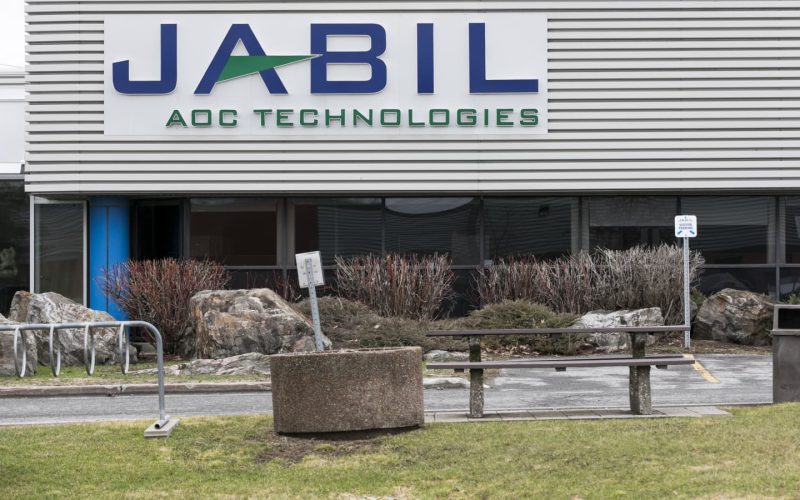In the dynamic landscape of corporate governance, leadership changes can signify pivotal moments for companies, influencing not only internal operations but also investor sentiment and market trajectory. Recently, Jabil, a global manufacturing services company, made headlines by replacing its CEO following an investigation, while also retracting its 2025 forecast. This move sparks questions about the intersection of leadership integrity, corporate performance, and shareholder trust. This article delves into the intricacies of the event, its implications, and the broader context of corporate governance.
The CEO Transition: Cause and Effect
The decision to replace a CEO is rarely arbitrary and often rooted in significant factors that affect the company’s reputation, performance, or compliance standards. In Jabil’s case, the transition came in the wake of an investigation, suggesting potential irregularities or breaches within the company’s internal framework. While specifics may not always be disclosed publicly, the mere existence of such an investigation can cast a shadow on the leadership’s credibility.
Implications of Leadership Change
A CEO transition signals a shift in strategic direction and corporate culture. It can represent an opportunity for renewal and revitalization, especially if the outgoing CEO’s tenure was marred by controversy or underperformance. However, it also introduces a period of uncertainty, as stakeholders anticipate the incoming CEO’s vision and management style. In Jabil’s scenario, stakeholders may scrutinize the incoming leadership’s ability to navigate the aftermath of the investigation and steer the company towards stability and growth.
Financial Ramifications: Retracting Forecasts
One of the immediate consequences of Jabil’s CEO replacement was the retraction of its 2025 forecast. Forecasts serve as guiding beacons for investors, shaping expectations and influencing investment decisions. When a company withdraws its forecast, it signals a lack of confidence in its ability to meet previously stated targets. This move can trigger volatility in the stock market, as investors reassess the company’s prospects and adjust their positions accordingly.
Comparative Analysis: Jabil in Context
To contextualize Jabil’s situation, it’s instructive to compare it with similar instances in the corporate world. Several companies have undergone CEO transitions amid investigations or scandals, each eliciting distinct reactions from stakeholders and yielding varied outcomes. By examining these cases, patterns emerge regarding the long-term effects of leadership changes on corporate performance, market valuation, and stakeholder trust.
| Company | CEO Transition | Financial Impact | Stakeholder Response |
|---|---|---|---|
| Company A | CEO resigned amid scandal | Stock plummeted 20% | Shareholder lawsuits |
| Company B | CEO replaced after investigation | Stock stabilized post-transition | Investor confidence restored |
Analyzing Leadership Dynamics
The dynamics of leadership within organizations are crucial factors in shaping their trajectory. A CEO’s departure, especially under circumstances like those at Jabil, prompts a critical examination of the corporate culture and governance practices. Boards of directors play a pivotal role in overseeing CEO conduct and ensuring alignment with the company’s values and objectives. In cases where investigations reveal lapses in governance or ethical breaches, boards must act decisively to mitigate reputational damage and uphold stakeholder trust. Moreover, transparent communication throughout the transition process is paramount to allay concerns among employees, investors, and business partners, fostering a sense of stability and continuity amid uncertainty.
The Road Ahead: Rebuilding Trust and Resilience
Looking ahead, Jabil faces the formidable task of rebuilding trust and resilience in the aftermath of its CEO transition and forecast retraction. Transparency, accountability, and ethical leadership will be indispensable in regaining investor confidence and restoring market credibility. Implementing robust internal controls and compliance mechanisms can help safeguard against future lapses and instill a culture of integrity from the top down. Additionally, prioritizing stakeholder engagement and communication channels can foster open dialogue and strengthen relationships with investors, customers, and regulatory bodies. By embracing these principles and navigating challenges with transparency and resolve, Jabil can emerge from this episode as a stronger, more resilient organization poised for sustainable growth and success.
Conclusion: Navigating Turbulent Waters
Jabil’s decision to replace its CEO and retract its 2025 forecast underscores the intricate interplay between leadership integrity, financial performance, and stakeholder trust. As the company charts a course through turbulent waters, it faces the dual challenge of restoring credibility while charting a strategic path forward. While CEO transitions can be disruptive, they also present opportunities for renewal and growth, provided the incoming leadership can inspire confidence and transparency. Ultimately, Jabil’s trajectory will be shaped not only by its operational resilience but also by its ability to rebuild trust and reaffirm its commitment to corporate governance standards.












